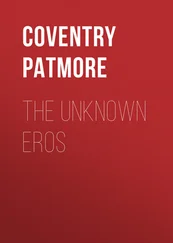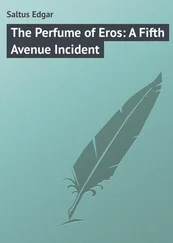As the first years passed at Cholon 7 Nan Luc came to believe absolutely in her images of that last day of old Saigon. And by extension she came to believe in a father desperate to take her with him to America. In her childhood years she saw him in increasing detail, as the tall man with the yellow bandanna, at the last moment finding her at the orphanage. But then what horror had occurred, what happening had separated them, caused him to lose her again among the rubble and piles of abandoned clothing along the road to the embassy.
The tissue of a child’s memory is cobbled together. For the first years after the catastrophic days when the United States was leaving Vietnam, Nan Luc, in State Orphanage Cholon 7, ceaselessly recounted to the other orphans how nearly she had escaped to America.
In Ho Chi Minh City a French word had been adopted for children such as herself. They were called ‘Ricains’, the contemptuous Paris slang word for Americans. With few exceptions they were tall, well-built adolescents, some of the girls with remarkable hybrid good looks, but all, nevertheless, carrying the scars of their dual ancestry. After the day’s work they would meet together in the orphanage corridors, telling their stories, playing their parts, boasting of their American fathers.
‘He’s arranging to get me to Florida,’ one boy claimed every night in a low, conspiratorial voice.
‘My father just got a message to me that I would be living with my family in New York by summer,’ another insisted to wry, disbelieving faces.
It was these hope-filled fantasies that affected Nan Luc as she got older, that brought her slowly to the conclusion that much or all of what she thought of as a memory was imagination. Why, after all, if her father had rescued her from the orphanage had he not been able to take her back to America with him? It was only one of many unanswered questions which began to raise doubts in her mind until brutally, almost deliberately, she pared her story down to the essentials of what she knew for certain. It was not much. She knew that the Eros Bar was not a figment. It was still there, its red door scratched and chipped, its tattered front boarded and thickly layered with revolutionary posters. She knew from the orphanage that her mother had died some time before the evacuation. Perhaps she remembered her mother, perhaps not. Perhaps the tall American she conjured up in her imagination resembled her father. Perhaps not. She knew only that among her uncertain memories she retained some certainty that there had once been love and trust in her life. But she had never succumbed to the wild hopes of the other Ricains of returning fathers who would carry them away across the sea. It was not that dream of escape that supported her, but another, more crucial to an orphan’s world, the dream that she had once been loved.
* * *
On the day she graduated from the children’s pioneer brigade Nan Luc was given a birth date. And a reminder of her strangely ambivalent status in the bright new world which victory had placed within everybody’s grasp. She had stood before the matron of her new section and signed her agreement to a date and place of birth in the former city of Saigon.
‘Today,’ the matron had smiled sparsely, ‘you become fifteen years of age. You know, you can see, that like some of the other children here, you are not of full Vietnamese parentage. It is your misfortune to have American blood.’
This open, unsubtle discrimination affected all the Amerasian children differently. Some became rebelliously attached to an America conjured up in their dreams. Others became fearful and guilt-ridden. Only the stronger spirits were able to retain some hidden attachment to the idea of an American father and freely embrace their childhood world at the same time.
Nan Luc was one of these. By the age of fifteen she had perfected the ability to keep hidden her secret American world so completely that she was appointed as junior instructor to the younger children in the exploits of the folk hero, Uncle Qui. This was an honour for a Ricain, a mark of trust.
The stories of Uncle Qui’s fabled exploits came from the Ministry of Education theoretical section in five yellow instruction books. Uncle Qui was a ghost. To the Vietnamese mind a ghost is a powerful symbol of vengeance, so powerful in the Chinese-Vietnamese tradition that Mao Tse Tung once banned all ghost stories in China because they had come to represent vengeance for his own crimes. In Vietnam the vengeance Uncle Qui had the duty to exact was against the landlords and generals of the old Vietnam and against the false pretender Uncle Sam, the American warlord who lived in a Disneyland castle defended by napalm and agent orange.
To make the exploits of Uncle Qui real to the children, even the orphaned children of Cholon No 7, the Vietnamese family was always evoked. In each story the avenging ghost of the young jungle fighter Qui exacted vengeance on behalf of good fathers killed or sisters forced into evil ways. When Nan Luc raised pictures of the false Uncle Sam, the fifty tiny children hissed and spat while a picture of the ghostly Qui would bring them to their feet cheering. All the age-old traditions of the Vietnamese people were concealed in these stories: the family; respect for their fathers; and an utterly implacable belief in the right and duty to revenge.
From these children’s stories, Nan herself absorbed what she might have absorbed from a family of her own. Brushing aside the evil American Disneyland of the yellow books, she still drank in the family aspects of the tales, the life of the village and the endlessly repeated gentle mothers and loving fathers, the rights of the Vietnamese family and the duty to defend it – and to avenge any wrong visited upon its members.
On the morning of her nineteenth official birthday Nan Luc walked the corridor towards the senior matron’s office. Most of her friends had left at the age of fifteen. She had no sense of being singled out. Only her teaching post, she imagined, had kept her from an assignment to a reconstruction area in the north. The tiled floor of the corridor clacked emptily under her sandalled feet. It was the appointed hour. From this last interview she would discover where the next part of her life, perhaps the rest of her life, would be spent.
At the door to the matron’s office she knocked and waited. Inside she heard voices, the matron’s and a man’s deeper tones. She knocked again. Straining, she heard footsteps approach. The door was opened by the matron who gestured to Nan Luc to enter. Inside, seated behind the matron’s desk, was the rarely seen Director of Orphanage 7. The matron stood beside him.
‘You know that today is the day you receive your assignment,’ the matron said. Nan Luc nodded with the polite smile directed as required, first to the comrade director and then to the matron.
The matron indicated a folded pile of clothes on the corner of the desk. ‘These are your possessions at the time of your entry to Orphanage 7. Ministry regulations lay down that all possessions must be returned on assignment day.’ Nan Luc looked at the folded green gingham school dress of the past and the six-year-old’s brown buckle shoes. A lump invaded her throat. ‘There’s one other thing.’ The matron was frowning with distaste. ‘You were wearing this at the time.’
She lifted a gold bracelet from behind the pile of clothes. Nan Luc took it from her and stared down at the thin gold band. It was inscribed: To my daughter , Nan Luc – with all my love . Inscribed in English.
‘Ministry regulations insist these items should be returned,’ the matron said.
The director nodded. He sat with a displeased, disapproving look on his face. ‘I can see no reason whatsoever,’ he said, ‘why you should not be assigned to a reconstruction unit.’
Читать дальше












